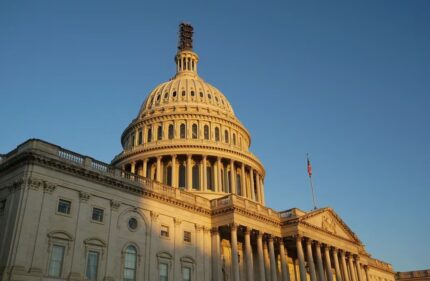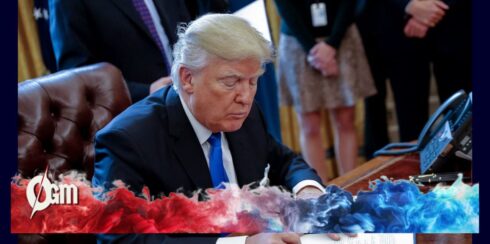The United States narrowly averted a federal government shutdown after the U.S. Senate voted overwhelmingly to pass a budget deal in the early hours of Saturday, following approval by the U.S. House of Representatives. The move ensured continued funding for federal operations and provided much-needed relief to millions of Americans reliant on government services.
A Midnight Victory in the U.S. Senate
The U.S.Senate passed the budget deal with a decisive 85-11 vote shortly after a midnight deadline, marking a rare display of bipartisan cooperation. The legislation will now proceed to U.S. President Joe Biden’s desk for final approval. The measure passed despite significant political wrangling and last-minute controversies, including opposition from some Republican lawmakers aligned with President-elect Donald Trump.
The shutdown would have disrupted services critical to millions, including national parks, food assistance programs, federally funded preschools, and disaster recovery operations. The last government shutdown, in 2019, spanned a record-breaking 35 days, highlighting the economic and social toll such interruptions impose on the nation.
Controversies Surrounding the Deal
The budget agreement, known as the “American Relief Act, 2025,” eliminated provisions that had become sticking points in earlier drafts, such as President-elect Trump’s demand for an increase in the federal borrowing limit. Democrats also faced setbacks, as the bill removed measures they supported, including healthcare reforms, funds for a collapsed Baltimore bridge, and protections against deceptive advertising by hotels and live event venues.
Notably, the bill includes $100 billion for disaster relief and $10 billion in aid to farmers, reflecting bipartisan priorities to address recent hurricanes and agricultural challenges. However, Democrats expressed frustration over the influence of Elon Musk, an unelected billionaire who had lobbied against previous iterations of the legislation.
Speaker Johnson Under Pressure
House Speaker Mike Johnson faced criticism from within his party for his handling of the negotiations. Despite the passage of the bill, Johnson emerged politically bruised, underscoring the challenges he may face in leading a divided Republican caucus. Speaking to reporters, Johnson expressed gratitude for bipartisan efforts to resolve the crisis but hinted at the contentious legislative battles ahead.
“We are grateful that everyone stood together to do the right thing, and having gotten this done now as the last order of business for the year, we are set up for a big and important new start in January,” Johnson said. He also acknowledged regular consultations with President-elect Trump and Elon Musk throughout the process.
Implications for the Future
The budget fight offered a preview of the legislative tensions expected to dominate the coming year as President-elect Trump prepares to take office and Republicans gain control of both congressional chambers. Trump and Musk’s involvement in the process has sparked debate about the future of governance under the incoming administration, with critics questioning the billionaire’s outsized influence.
Musk, who has been tasked by Trump with streamlining government spending, publicly praised Speaker Johnson’s handling of the negotiations. “The Speaker did a good job here, given the circumstances,” Musk posted on X, the platform he owns. His remarks have further fueled concerns among Democrats about the role of unelected individuals in shaping national policy.
As the nation moves forward, the passage of the budget deal serves as a critical moment of compromise. Yet, the political maneuvering that accompanied the process indicates that the U.S. Congress may face even greater challenges in the months to come.
What is a Government Shutdown?
A government shutdown occurs when the U.S.Senate fails to approve a spending bill or extend the funding deadline, causing disruptions to federal employees and the public services they provide.
During a shutdown, essential government agencies like the FBI, Border Patrol, and the Coast Guard remain operational. However, non-essential services face closures, such as national parks and monuments. While military troops stay on duty, many civilian employees in agencies like the Department of Defense are furloughed. Furloughed workers temporarily stop working but retain their jobs until the government reopens.
The judiciary is also affected, with civil proceedings paused while criminal prosecutions continue. The Internal Revenue Service (IRS) halts activities like auditing tax returns during this period.
The longest government shutdown in U.S. history occurred between December 2018 and January 2019 during President Donald Trump’s first term in office














